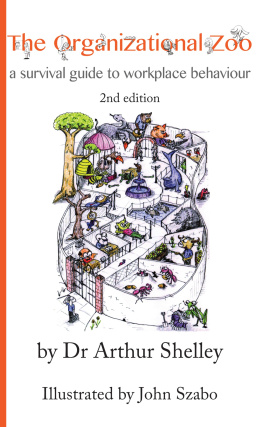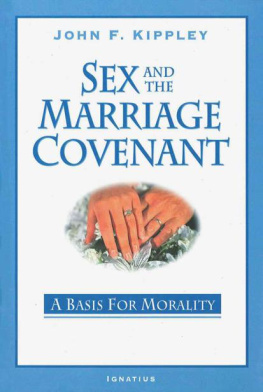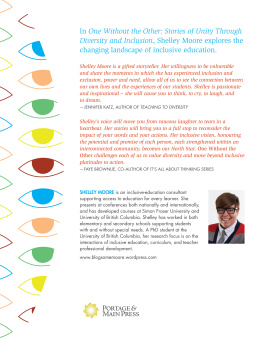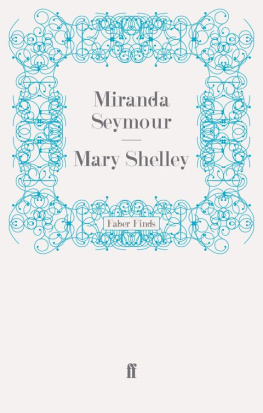SHELLEY AND THE MARRIAGE QUESTION.
Now that marriage, like most other time-honoured institutions, has come to stand, a thing accused, at the bar of public opinion, it may be interesting to see what Shelley has to say about it. The marriage problem is a complex one, involving many questions not very easy to answer offhand or even after much consideration. What is marriage? Of divine or human institution? For what ends was it instituted? How far does it attain these ends? And a dozen others involved in these.
The very idea of marriage implies some kind of bond imposed by society upon the sexual relations of its members, male and female; some kind of restriction upon the absolute promiscuity and absolute instability of these relationssuch restriction taking the form of a contract between individuals, endorsed by society, and enforced with more or less stringency by public opinion. Its object at first was probably simply to ensure to each male member of the tribe the quiet enjoyment of his wife or wives, and the free exploitation of the children she or they produced. The patriarchal tyranny was established, and through the sanction of primitive religion and law became a divine institution. Then, as civilization progressed, the wife and children became less and less the mere slaves, more and more the respected subjects, of the patriarch. The paternal instinct (like the maternal) became developed, and family affection came into existence. At present the whirligig of time is bringing its revenges. The patriarchal tyranny begins to totter; parents are often more the slaves than the masters of their children. And even wives begin to rebel against wifedom, and threaten to revolutionize marriage in their own interest. Woman, like everybody else, is beginning to strike for higher wages. There are more than the first mutterings of that revolution in the Golden City of Divine institutions prophesied of by Shelley in Laon and Cythna. There are a good many Cythnas ready to rush about on their black Tartarian hobbies, of whom Mrs. Mona Caird is the one who has recently made most noise.
There is a little design of Blakes in The Gates of Paradise, which represents a man standing on the earth who leans a ladder against the moon and prepares to mount; the motto underneath being: I want! I want! This is a type of our own age. Never was such an age of discontent, never such a Babel of voices crying: I want! I want! We have become very conscious of our pain, and are not ashamed to cry out and proclaim it on the house-tops in these hysterical timessimply because the ancient sanctions and anodynes have lost their sanctity and comfort for us. The very priests in black gowns who used to walk their rounds and bind with briers our joys and desires, have been themselves corrupted with a longing for a little present happiness, and that Old Woman in the shoe, Mrs. Grundy herself, instead of whipping us all round and putting us to bed in the old summary fashion, when we venture to complain that the shoe pinches here and there, has herself become lachrymose. We cry out because, having neither the old repressions nor the old opiates to restrain us, there is no valid reason why we should hold our tongues. By crying loud enough and long enough we may get some help. We may even find some good-natured person to stop crying himself and help us; and then for very shame we may go and do likewise. In this lies the ages hope. It is really in its best aspect an unselfish age, an age in which sympathy and justice are vital forces, in which the miseries of others are felt as our own. There are thousands now who feel themselves as nerves oer which do creep the else unfelt oppressions of the earth. We are not wise enough yet to conceive and organize those vital adjustments between conflicting wants, interests, and principles, which shall be of deeper efficiency than mere superficial compromises; but this wisdom will come in due time, if we do not rush into anarchy through that licentious impatience which is the curse of revolutionary periods.
Now, of all the bitter cries ringing in the air at the present time, about the bitterest and most persistent is that not merely of women, but of woman with a capital W. It is the most appalling note of change that can pierce the ear of self-satisfied Conservatism. The patient Griselda has begun to protest against the tyranny of her lord and master. Loves martyr has at last begun to think that her martyrdom must have its limits. It is as if the Lamb, whose function we thought was to be dumb before its shearers and even sacrificers, had found a voice of protestation. It is a portent. And even men are constrained to listen to the cry; for it sounds like the birth-cry of regenerated Love. Not now Love self-slain in some sweet shameful way, but Love the winged angel who shall finally cast out Lust, the adversary. But many things must come to pass before this triumph of love can be brought about; and in many respects the horoscope looks unpropitious enough. The first effect of the birth, or coming to the surface of a higher ideal, gradually evolved by the progress of society, is apparently to make confusion worse confounded. Not peace but a sword is the first gift of the Prince of Peace. Liberty comes masked like Tyranny, and cries Fraternity or death! Love goes wantonly about with the Mnads of licentiousness at his heels. But the divine Logos, incarnate as the Son of man, always comes not to destroy but to fulfil.
Just now that highly moral being, Man in the masculine gender, is much shocked at the strangely immoral conduct of his feminine counterpart. In the first place, she has dared to look at the realities of things with her own eyes, not through the rose-coloured spectacles with which he has been at pains to provide her; and not only that, but to peep behind the sacred veil which man has modestly cast over many ugly things. Secondly, she has begun to talk openly about these ugly things, and to call them by non-euphemistic, ugly names, in a manner quite unprecedented. Thirdly, she has dared to attempt her own solution of things insoluble, her own achievement of things impossible. And fourthly, she has dared to formulate a demand for liberty, equality, fraternity on her own accounta demand which every day comes more and more within the sphere of practical politics. Here are pure women making common cause with prostitutes, married women crying out against the holy institution of matrimony, mothers rebelling against the tyranny of the beatific babynay, absolutely on strike against child-bearing, or at least demanding limited liability as regards that important function. Finally, here is Woman, whether as virgin, wife, or widow, demanding independence as to property and a fair share of the worlds goods in return for a fair share of the general work of the world outside of her special womanly functions. Dn it, sir, I say that women are unsexing themselvesunsexing themselves, by Jove! as Major Pendennis might exclaim. And the worst of it is that there are so many men, traitors to their sex, who are casting in their lot with women in this terrible Womens Rights movementunsexing themselves, too, no doubtso that we shall all soon become either a-sexual or hermaphrodite beings! And here let us leave for a moment the more or less limited and prosaic Cythnas of the day, the terrible women who ride about upon Tartarian hobby-horses in novels and magazine articles, who spout on platforms and practise medicine and other dreadful tradesthe scientific Mrs. Somervilles, and medical Mrs. Garrett Andersons, and pious Mrs. Josephine Butlers, and impious Mrs. Mona Cairds, and get back to Shelley himself, the poet of this shocking social aberration.










